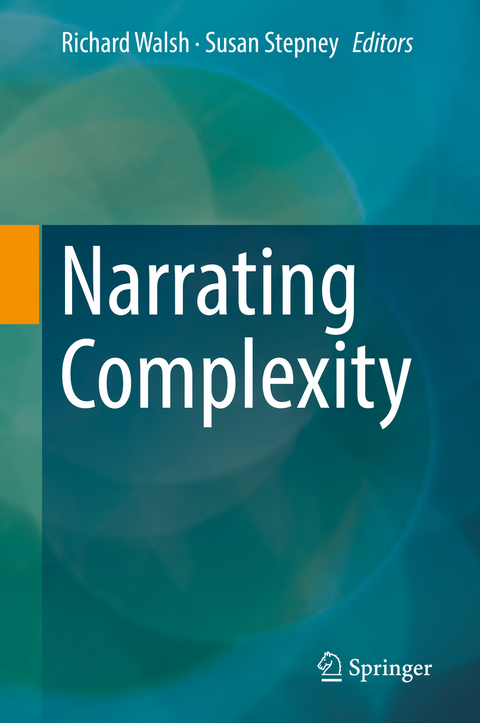
Narrating Complexity
Springer International Publishing (Verlag)
978-3-319-64712-8 (ISBN)
This book stages a dialogue between international researchers from the broad fields of complexity science and narrative studies. It presents an edited collection of chapters on aspects of how narrative theory from the humanities may be exploited to understand, explain, describe, and communicate aspects of complex systems, such as their emergent properties, feedbacks, and downwards causation; and how ideas from complexity science can inform narrative theory, and help explain, understand, and construct new, more complex models of narrative as a cognitive faculty and as a pervasive cultural form in new and old media.
The book is suitable for academics, practitioners, and professionals, and postgraduates in complex systems, narrative theory, literary and film studies, new media and game studies, and science communication.
Richard Walsh is a member of the Dept. of English and Related Literature in the University of York. He teaches modules in American literature and in theories of story, covering fiction and non-fiction, the earliest years of cinema, and graphic novels, as well as narratives in digital and interactive media. Susan Stepney is a professor of Computer Science in the University of York. Her main area of interest is non-standard computation, in particular bioinspired algorithms, complex adaptive systems, emergent properties, and nanite assemblers.
Introduction and Overview: Who, What, Why.- Narrative Theory for Complexity Scientists.- Complex Systems for Narrative Theorists.- A Brief History of Systems Thinking.- Sense and Wonder: Complexity and the Limits of Narrative Understanding.- The Benefit of Doubt: Embracing Complexity and Uncertainty.- Simple Story of the Complex Mind? A Rhetorical Analysis of Cognitive Science Texts.- When Robots Tell Each Other Stories, or the Emergence of Artificial Fiction.- Plato with a Movie Camera: Visually Thinking of Complexity.- Augmenting Communication: Peering at Narratives and Complexity Through a Digital Arts Lens.- The Secret Life of Civilization.- Our Complex Earth.- Why Do We Trust Computer Simulations?.- Irreducible Complexity and Narrating the Endarkenment.- Gardening Complex Systems, and Other Metaphors.- Analysis of Contributions.- From Simplex to Complex Narrative: A New Model.
| Erscheinungsdatum | 14.11.2018 |
|---|---|
| Zusatzinfo | VIII, 322 p. 48 illus., 32 illus. in color. |
| Verlagsort | Cham |
| Sprache | englisch |
| Maße | 155 x 235 mm |
| Gewicht | 660 g |
| Themenwelt | Informatik ► Theorie / Studium ► Künstliche Intelligenz / Robotik |
| Schlagworte | Artificial Intelligence • artificial intelligence (incl. robotics) • Complex Systems • Computer Science • computer simulation • Creative Writing • Creative writing & creative writing guides • Creative writing & creative writing guides • Digital Media • Ecology • Film and Television Studies • Films, cinema • Film Studies • Graphical & digital media applications • Graphical & digital media applications • Media Design • Media Studies • narrative • Robotics • Science Communication • user interface design & usability • User interface design & usability • user interfaces and human computer interaction |
| ISBN-10 | 3-319-64712-1 / 3319647121 |
| ISBN-13 | 978-3-319-64712-8 / 9783319647128 |
| Zustand | Neuware |
| Haben Sie eine Frage zum Produkt? |
aus dem Bereich


